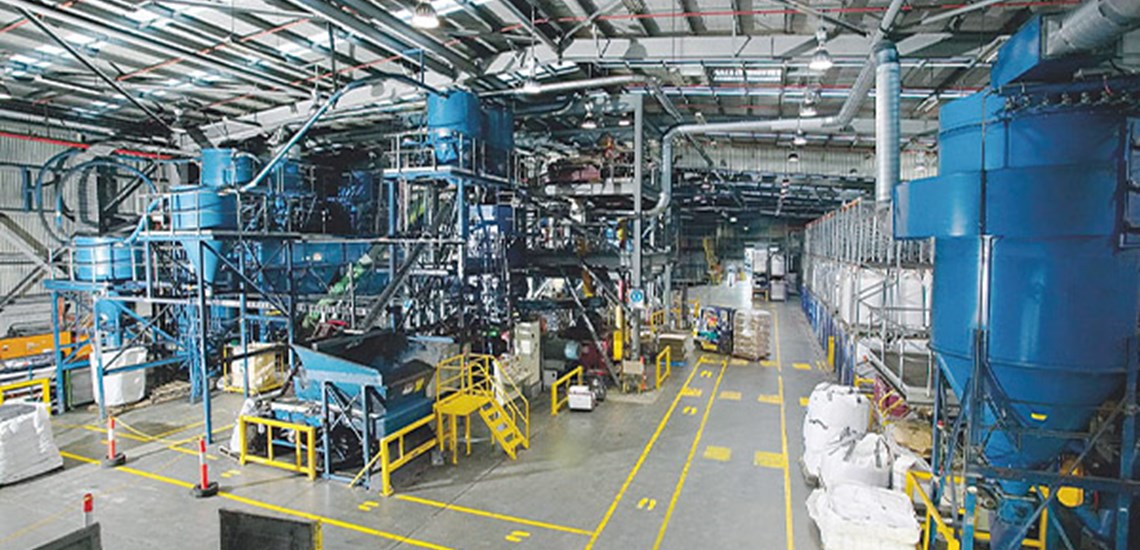As the first of its kind commissioned in Australia, the launch of the new $10 million state-of-the-art facility follows the December 1 introduction of the COAG waste ban on the export of whole-baled tyres.
New Australian Tyre Recycling Plant a Game Changer
Tyrecycle CEO Jim Fairweather says the plant will be able to sustainably process the tens of thousands of tonnes of tyre waste that was previously being sent offshore to poor environmental outcomes. “It represents a massive win for the environment and for Australia’s circular economy, in that end-of-life tyres will now be given a new lease on life,” Mr Fairweather says.
The plant will be using world-leading technology to transform waste tyres into quality products for re-use, including tyre-derived fuel and rubber crumb for use in roads, tile adhesive and sporting surfaces. The plant has the capacity to produce 10,000 tonnes of rubber crumb and generate 40,000 tonnes of Tyre Derived Fuel (TDF). “It reflects a significant step forward in Australia responsibly dealing with its own tyre waste, driving strong environmental and economic outcomes.”
Construction of the plant was supported by a $1.5 million grant for phase 1 and a further $ 2.9 million for phase 2 from the Recycling Modernisation Fund, as part of the transformation of Australia’s waste and recycling capacity. “The Morrison Government’s $190 million commitment is being matched by states and territories, and business is backing it in with unprecedented spending,”
Minister Ley said. “Australians are doing their bit through domestic recycling, but as a nation, we need to create more opportunities for recycled content and better ways of processing.
“Tyrecycle’s new plant will process some of the 56 million tyres that reach their end of life on Australian roads each year.
“The Morrison Government is sending a clear signal for change with the third tranche of our waste export ban last week closing the door on the shipping of seven million baled tyres to overseas markets each year.”
As Australia’s oldest and largest tyre recycler, Tyrecycle, the tyre recycling business of leading resource recovery and remanufacturing firm ResourceCo, operates seven tyre recycling plants across Australia. “We’re undertaking the largest capital investment in the company’s 30 year’ history, upgrading our plants and equipment across the country to meet increased demand for sustainable tyre recycling,” Mr Fairweather said.
“We’re also strongly supported by a network of trusted tyre recyclers that are committed to responsibly dealing with end-of-life tyres – it’s a crucial partnership.
“We know consumers will shift their purchasing decisions based on intrinsic values and so it’s important that we work with retailers to progress that conversation at the customer level.”
As well as continued consumer education, Mr Fairweather says it is vital that governments, industry bodies and the private sector work together to actively pursue and develop new domestic and international markets for tyre-derived materials. “We see huge growth potential in the use of rubber crumb in road construction, but it needs to be supported by bold procurement commitments from all levels of government.
“Trials have already demonstrated improved grip and braking distances, reduced noise levels and reduced whole-of-life costs.
“While the use of tyre-derived fuel (TDF) in Australia, as an alternative fuel source for industrial applications such as cement plants and pulp mill sectors, still remains relatively untapped.
“There’s work to be done but the opportunities are there, particularly as companies look to support greener supply chains.”




















